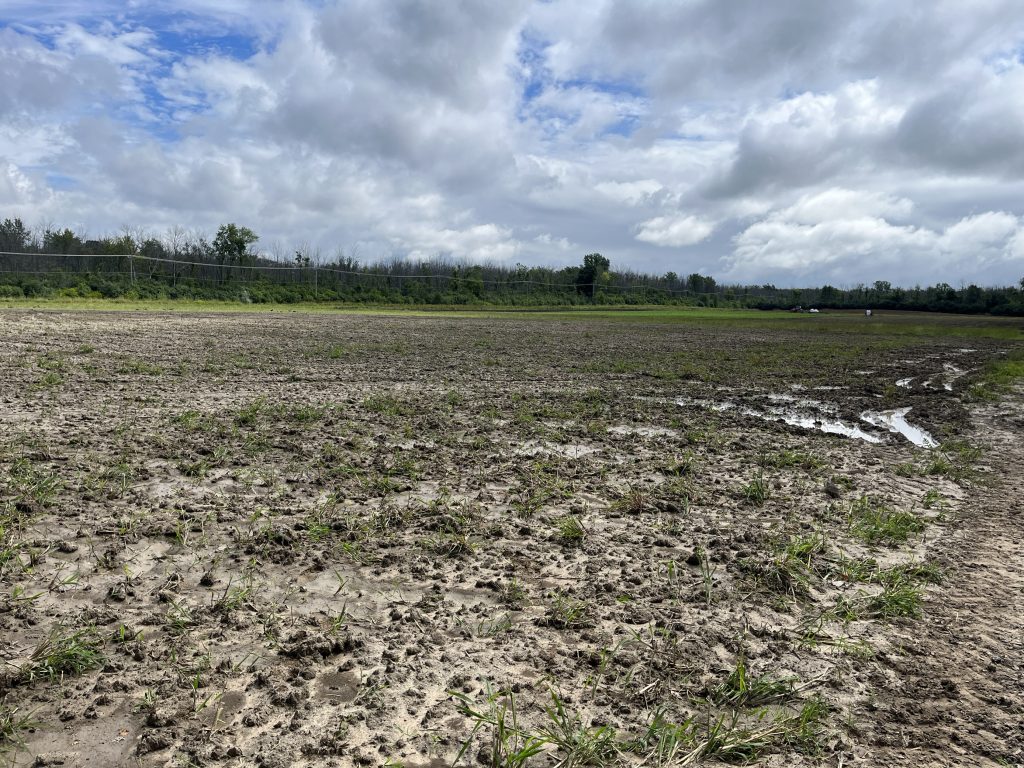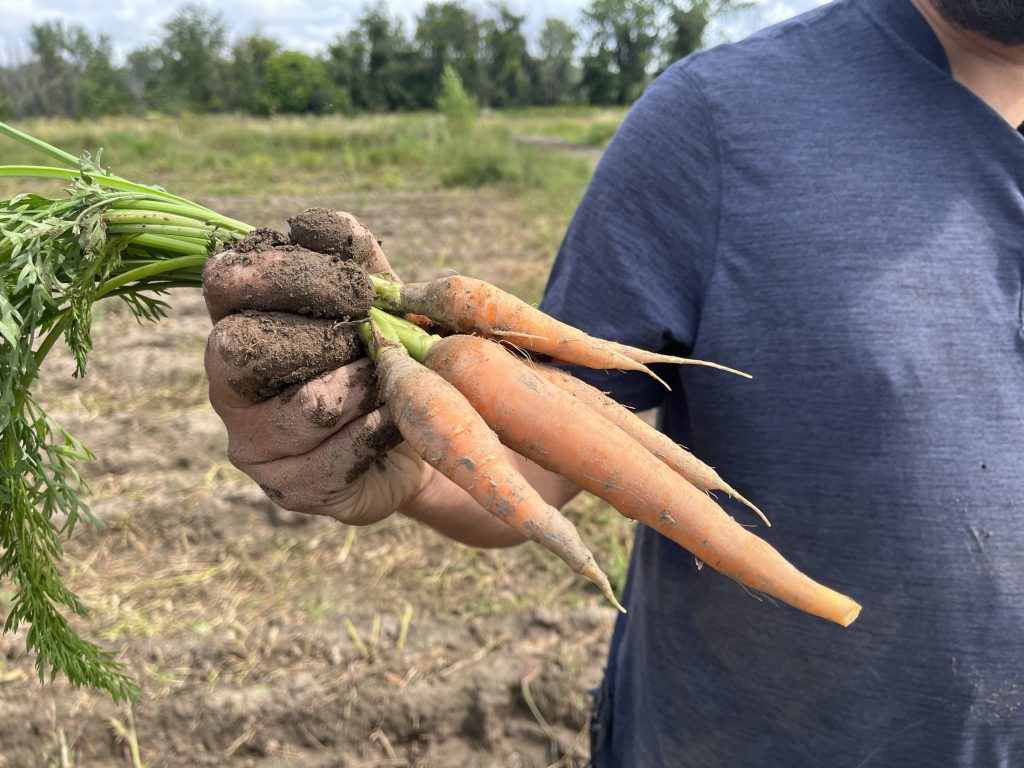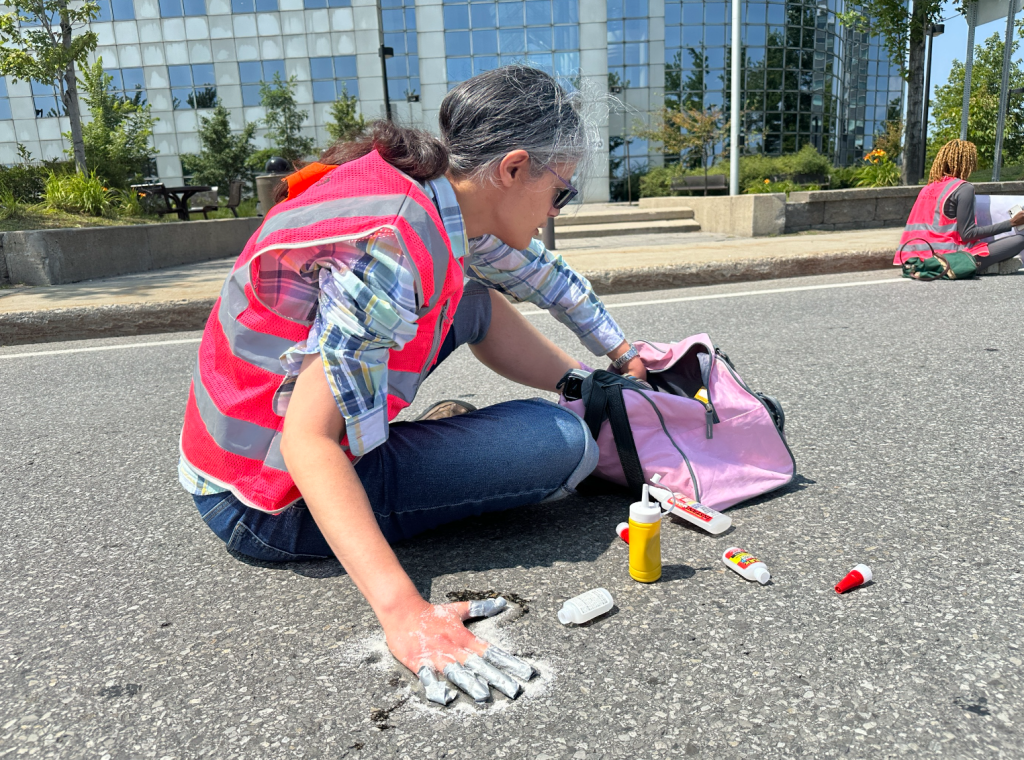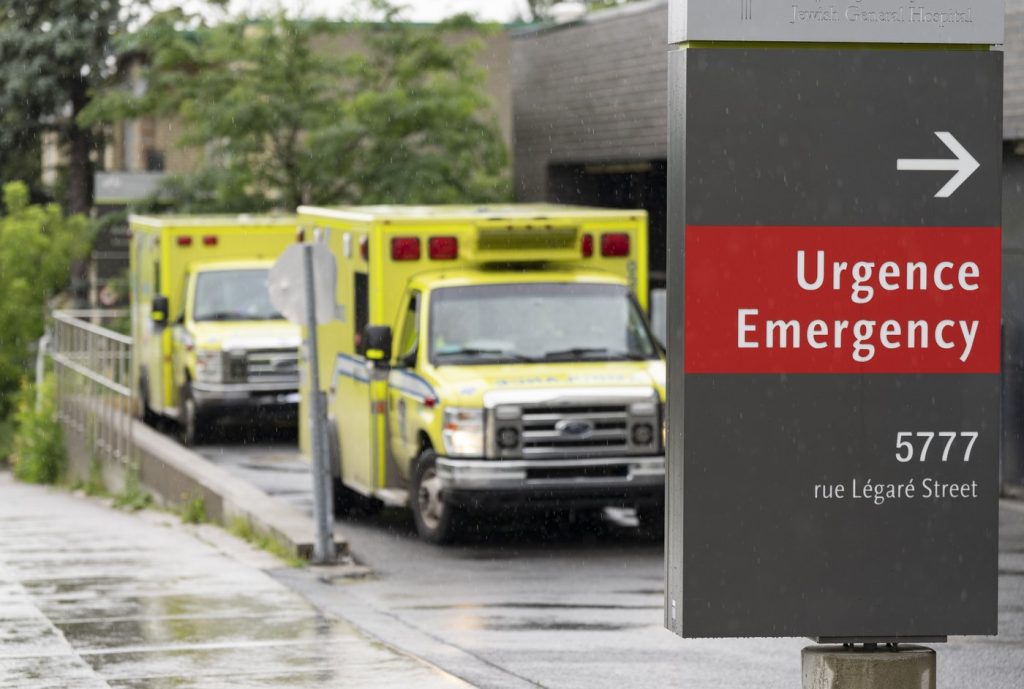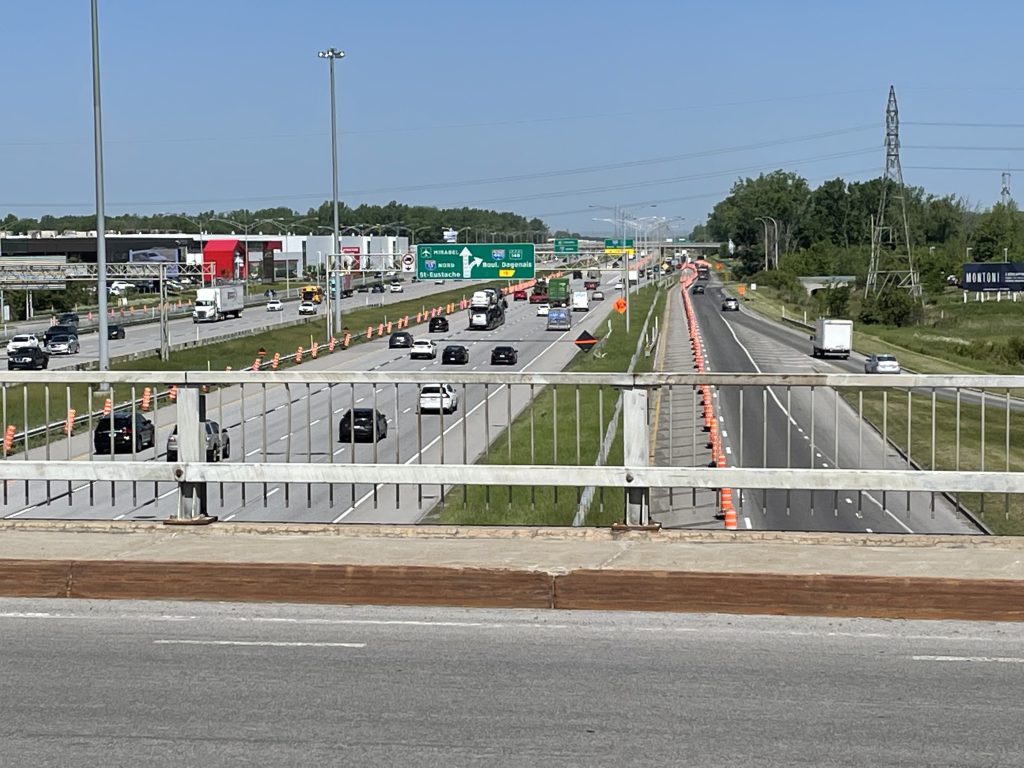Growing food on unused land in the West Island for families in need
Posted August 16, 2023 2:30 pm.
Last Updated August 16, 2023 11:24 pm.
With the price of food rising faster than families’ incomes, some are taking it upon themselves to help vulnerable Montrealers.
“It’s really to try to take land that is owned by the city of Montreal, put it into cultivation, and bring the fruits of that labour to people in need,” said Chanel Perreault, the coordinator for the Cultiver l’Espoir program for the organization Regroupement Partage.
Thousands of servings of fresh, local, organic vegetables are being grown for families at farms in the West Island. It’s part of the “Cultiver L’espoir” program – run by Regroupement Partage – that reclaims and cultivates unused land to serve vulnerable Montrealers.
“It’s because they’re not being paid enough. It’s because the prices are rising everywhere. And so it’s more important than ever right now to produce food, to give access to food,” emphasized Perreault.
This year four versatile vegetables are being grown at the D-Trois-Pierres farm in the Bois-de-la-Roche agricultural park in Senneville: carrots, beats, potatoes and cabbage.
“Specifically we grow root vegetables or storage vegetables like cabbage, carrots, etc., so that we can distribute during winter when there’s usually kind of like a dip in terms of the availability of fresh fruits and vegetables at food banks and at community organizations,” explained Perreault.
Regroupement Partage adds the “Cultiver l’Espoir” program, which began in 2015, is more relevant than ever given rising food prices since the pandemic.

Cabbage on land in Senneville on Aug. 16, 2023, part of the “Cultiver L’espoir” program. (Gareth Madoc-Jones, CityNews)
In 2022, Regroupement Partage delivered 71.8 tons of vegetables to people experiencing food insecurity. This year the program plans on producing 800,000 servings of vegetables.
“The goal is to have the highest level of nutrition possible and also the longest conservation time. And in terms of total quantity, we’re aiming for about 200,000 pounds this year. So a pretty high yield,” said Perreault. “That means it’s like 65,000 people that we’re looking to serve this year with our vegetables.”
The cultivated area of land used to grow vegetables has increased from 3.5 hectares to five.
“I have five workers from Guatemala who work with me 60 hours a week and they work hard,” explained Alexandre Godley, the agriculture manager for D-Trois-Pierres, the non-profit group that manages the farming of the vegetables. “We work hard all summer long to help feed Montrealers.”
“Cultiver l’Espoir is a partnership. We depend on the city of Montreal for the land that we’re growing on, for the work that goes into the land that we’re growing on. We depend on D-Trois-Pierres and our relations with them to grow the stuff,” stressed Perreault, adding, “without those key partnerships and without the partnerships of the foundations that also fund us, this project would be impossible.”

